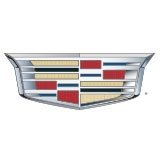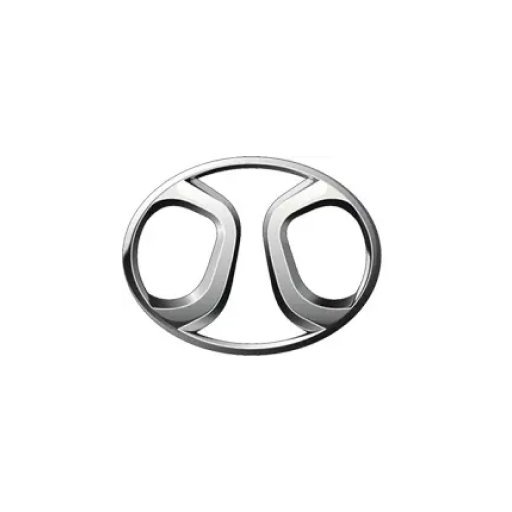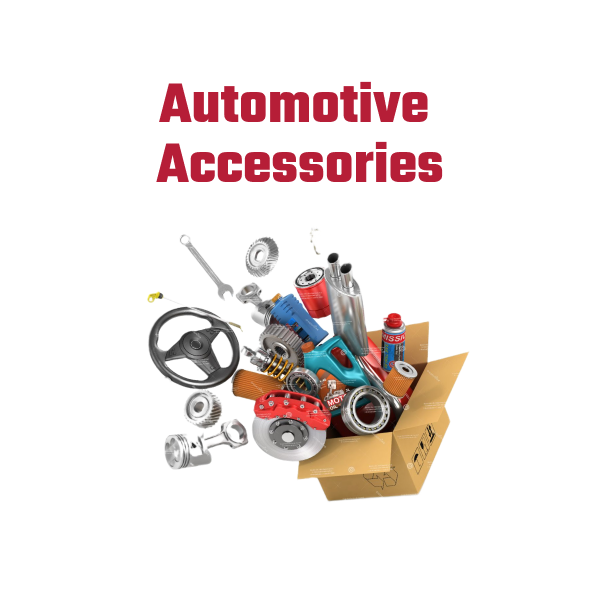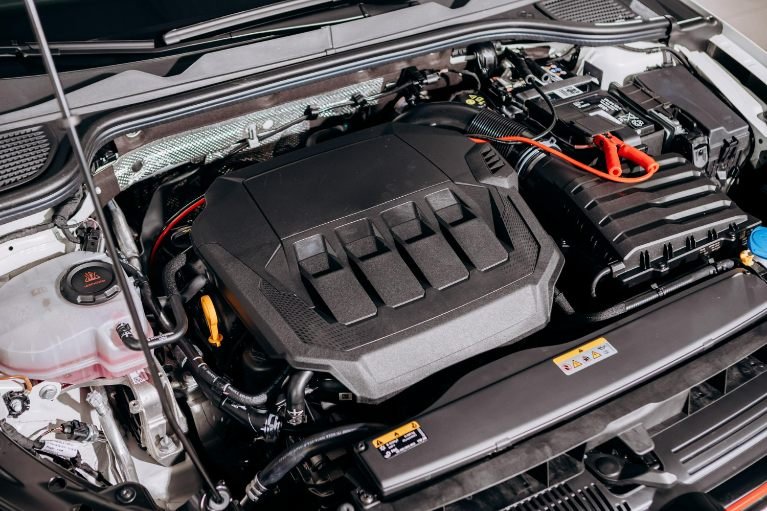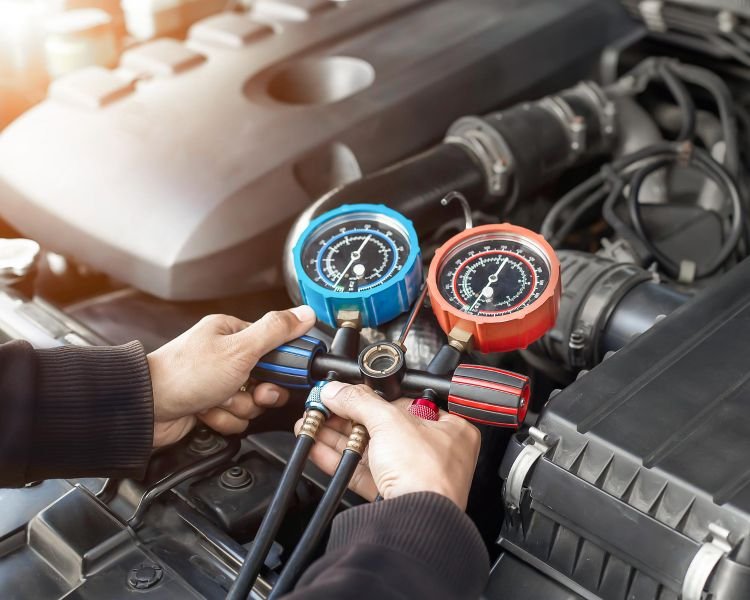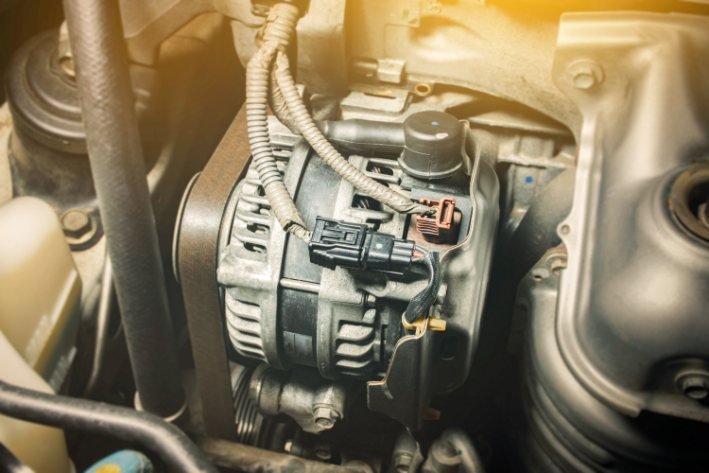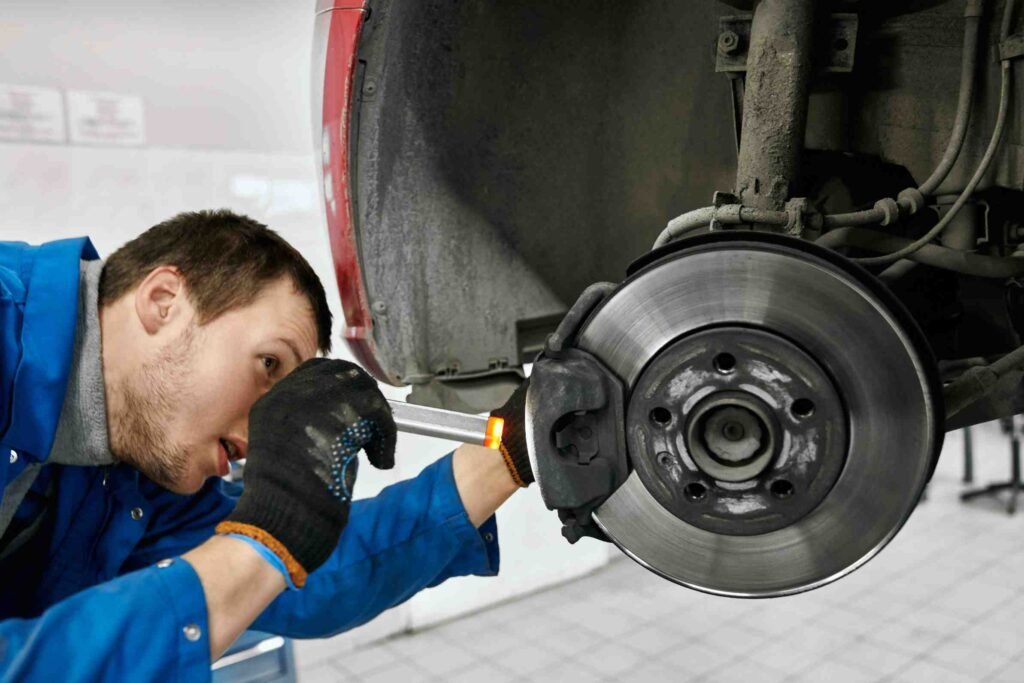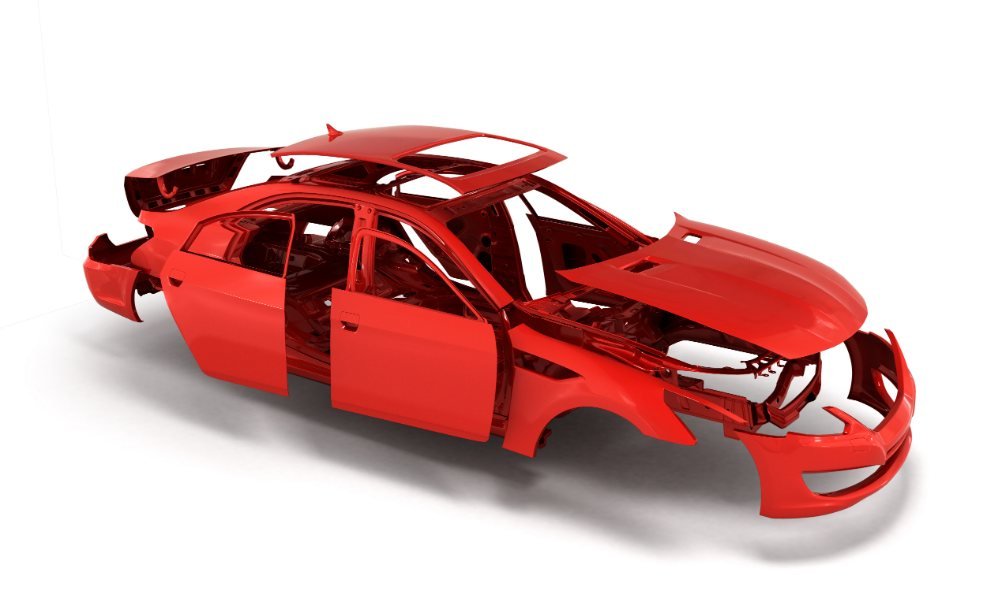5 Signs Your Car Air Conditioning Needs Help
A functional car air conditioning system ensures a comfortable and pleasant driving experience, especially during hot and humid weather. Regular car AC maintenance can prevent issues, including weak or warm airflow, unpleasant odours, strange noises, frequent cycling, and refrigerant leaks.
These problems jeopardize not only the comfort of the passengers but also the overall effectiveness and efficiency of the vehicle. This article will explain the significance of proper maintenance to prevent pain, potential AC-related issues, and five clear symptoms that your car’s air conditioning requires care. So let’s talk about your car AC and car cooling system.
Five signs that your Car Air Conditioning needs attention
Sign 1: Weak or Warm Airflow
Weak or warm airflow is evident when you turn on your car’s air conditioning and experience hot air blowing out instead of the cooling breeze you anticipate. This condition, which can be aggravating, especially in the sweltering summers, points to a more serious AC system problem. A variety of situations might cause weak or heated airflow. Clogged air filters impede the smooth flow of air, and inadequate cooling can result from compressor problems.
There are several reasons why it’s crucial to address weak or warm airflow right away. Not only does it affect your comfort while driving, but it also flags potential AC system issues that could get worse if ignored.
Sign 2: Unpleasant Odors Emanating from Vents
Several underlying problems may be indicated by unpleasant odours emanating from your car’s air conditioning vents. Musty, moldy, or stale scents are typical smells caused by drainage tubes clogged or moisture buildup in the air conditioning system.
Breathing in odorous air can have negative health effects, especially for people with allergies or respiratory disorders. Mold spores and other airborne contaminants can aggravate pre-existing medical conditions and cause respiratory discomfort and coughing.
It’s essential to deal with the odours’ underlying causes to improve the air quality inside the car. Mold and germs can be eliminated by routinely cleaning and sanitising the AC system, including the vents and ducts. Additionally, ensuring that drainage tubes operate properly avoids moisture buildup promoting bacteria development.
By capturing dust, pollen, and other airborne particles, cabin air filters play a crucial function in deodorizing the cabin. The risk of offensive odours and promoting a healthier driving environment is reduced by replacing these filters at the prescribed intervals.
Sign 3: Unusual Noises During AC Operation
Strange sounds from your car’s air conditioning system, such as rattling, hissing, or screeching, are unmistakable signs of underlying problems. These strange noises not only bother but may also indicate AC system issues.
Diagnosing the problem requires an understanding of the causes of these noises. While hissing sounds could indicate a refrigerant leak, rattling sounds might be caused by broken or loose components. A worn-out belt or an unreliable compressor may make squealing noises.
There are bigger risks involved if you ignore these noises. Ignoring a refrigerant leak can worsen existing problems with the air conditioning system and limit cooling effectiveness. If not immediately rectified, faulty components might lead to expensive repairs or total AC system failure.
If you hear strange AC noises, you should get professional assistance. Professional experts can identify the issue with accuracy and offer workable remedies. Early intervention can stop future damage and guarantee that your car’s air conditioning system runs smoothly and quietly, improving your driving comfort.
Sign 4: Frequent Cycling On and Off
When something frequently cycles on and off, the air conditioning compressor in your car does it quickly. This cycle is a typical aspect of the AC system’s operation since it aids in maintaining a constant interior temperature by controlling the cooling process.
Nevertheless, several circumstances may contribute to excessive cycling, resulting in problems. Rapid cycling can be caused by low refrigerant levels brought on by leaks, faulty pressure sensors, or a broken thermostat.
Excessive cycling might hurt the fuel economy and operation of the AC. The compressor and other components may become overworked by the continuous on-off cycles, which could result in early wear and tear.
It’s crucial to look for refrigerant leaks and ensure the system has the right amount of refrigerant before troubleshooting and fixing cycling problems. Next, check for malfunctioning pressure sensors or thermostats and replace them. If the issue continues, it is advisable to seek professional help to correctly identify and address the root cause of the frequent cycling, restoring the AC system’s effectiveness and extending its lifespan.
Sign 5: Visible Refrigerant Leaks or Moisture Build-Up
Look for greasy stains, puddles, or frost on the AC’s internal parts to identify evident refrigerant leaks. These are signs that refrigerant is leaking from the system. Another warning indication of potential leakage is moisture accumulation in or around the AC system.
Low refrigerant levels brought on by leaks can substantially impact the air conditioner’s ability to cool, resulting in insufficient cooling and discomfort in hot weather. Additionally, moisture buildup can be a haven for mold and mildew, lowering indoor air quality and perhaps resulting in health problems.
Refrigerant leaks can harm the environment because it is a strong greenhouse gas that causes ozone depletion and climate change. Reducing hazardous emissions and minimizing the system’s environmental impact need regular AC system maintenance and fast leak repairs.
It is vital to get professional help if you see apparent refrigerant leakage or moisture buildup. To maintain optimal AC performance while minimizing environmental harm, skilled technicians can locate the leaks’ source, fix the broken parts, and recharge the refrigerant. In addition to restoring your car’s cooling capacity, immediately addressing these problems will help make driving more environmentally friendly and sustainable.
Preventive Measures: Keeping Your Car AC in Top Shape
To make sure your car’s air conditioning performs at its optimum, routine AC maintenance and inspections are essential. Professional reviews regularly can find problems early and fix them, saving money on repairs and guaranteeing peak performance.
Seasonal maintenance is necessary to prepare the AC for various weather scenarios. Condenser coils can be cleaned, refrigerant levels can be checked before the summer, and the system may need to be protected from freezing temperatures during the winter.
To maintain clean air circulation and prevent dust and debris buildup, which can reduce AC efficiency and air quality, it is essential to regularly replace/clean air filters, AC Filter, AC Compressor and clean AC components.
Adopting preventive measures will considerably increase the lifespan of your car’s air conditioning, saving you money on repairs and replacements while allowing you to drive consistently and comfortably all year.
Conclusion
A properly functioning car air conditioning system is essential for a comfortable and enjoyable driving experience, especially during hot weather. Understanding the warning indications that your car’s AC requires repair is essential to avoiding discomfort and potential problems in the future.
Being proactive with AC maintenance is essential to prevent issues like poor airflow, unpleasant odours, strange noises, and refrigerant leakage. Quickly addressing these issues can increase the system’s longevity and restore efficiency, whether through DIY troubleshooting or consulting a professional. You can keep your car’s air conditioning in good condition by taking preventive measures and getting regular checkups, enabling you to cruise through any journey without breaking a sweat.
Where can you buy Best Auto Spare Parts in Dubai?
Auto Spare Parts are available at different suppliers and dealers of auto spare parts in Dubai. Noorhan is amongst the leading brands that deal with genuine auto spare parts and aftermarket parts for different car brands, including BMW, Mercedes, Audi, Porsche, Honda, Toyota, Nissan, Mazda, Jeep, Ford, and other Japanese, European, American, Korean, luxury cars brand.
If you’re looking to replace your old Auto Spare Parts with high-quality aftermarket parts in Dubai, Noorhan can help you.





















